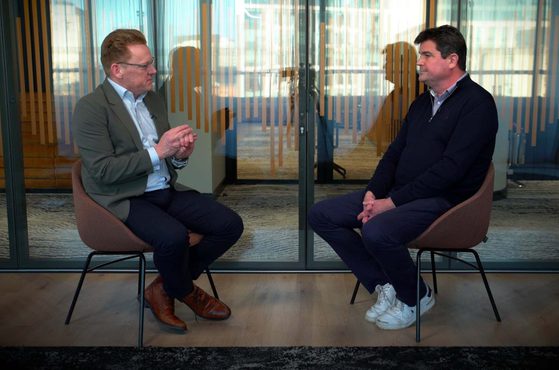Making acquisitions work — 5 practical lessons from 25 years of deal experience

We set out the practical lessons, human factors and challenges that shape successful transactions, covering strategy, due diligence and post‑completion.
Read more
We make the difference. Talk to us: 0333 004 4488 | hello@brabners.com
As one of the UK’s most active legal teams for merger and acquisition (M&A) activity, we advised on over £800m of deals across 188 transactions for a range of private companies and household names in 2024 alone.
Here, Jon Close and Rupert Gill — who possess a combined 50 years of M&A industry experience — share 14 of the most crucial lessons they’ve learned during that time to help companies on the acquisition trail complete deals successfully.
In any acquisition, internal and external communications are key. For internal communication, there’ll be the need to justify expenses and timescales, as well as fully understand how long an acquisition will take. If there are internal issues such as pay pressures at play, it’s best to keep those involved in the loop throughout. For external communications, it’s important to create a defined story and stick to that when informing both the target and wider market.
The correct strategy links to everything else in this list. Set it and stick to it, it’s that simple. Once you’re settled on a plan, review it once more as a pre-completion exercise. Does what you’re proposing to do still fit the strategy? Can it be easily communicated internally and externally?
It’s just as important that the company you’re acquiring is right for you. An acquisition can take anything from several months under best-case scenarios to several years under other circumstances — so it’s important that you share some of the same values.
It’s key to understand what the commercial drivers are for the sale and always have that in mind as part of any negotiations. Remember that what you’re buying is their ‘baby’, so their trust in you is key — not only in terms of whether they’ll sell but also when it comes to pricing and divulging information.
Ask the same question from day one right to the point of signature — is this still the right move? It’s best not to fall into the trap of feeling that the momentum of the deal means you must go ahead. You don’t want to be throwing good money after bad.
Undergoing due diligence contributes to making informed decisions by enhancing the quality of information available to decision-makers. It’s important to consider what the critical elements are — whether they’re the people, IP, contracts, real estate or any other relevant assets. Focus on the due diligence key findings but don’t forget about your gut. Your instincts will often be right.
Once you’ve gathered all the due diligence information, ask yourself: would you still pay that amount knowing what you know now? Have you mitigated risks through price reductions, retentions, indemnities, warranty and indemnity insurance, etc.?
AI can be a wonderful tool, but it’s just that — a tool. At a recent event we attended, RSK Group’s Head of M&A, Rob Winkler, said it best: “AI will support and enhance your research but it can’t do the psychology”.
Having regular calls with everyone involved in the deal from the early stages — when open discussions can elicit the most useful information — encourages a collaborative approach as opposed to an ‘us and them’ one. This will be a great help when issues arise — and in our experience, they always do.
Make sure to have a clear plan for after you complete. A good starting point is the 100-day plan that many people use, which goes much further than the business plan alone. Your plan should deal with the integration of people, systems, processes and policies alongside addressing any matters flagged during the due diligence process. Always prioritise — don’t kick things into the long grass as they’ll only come back to bite you.
Culture, integration, an ‘us and them’ mentality, lack of clarity about roles and worries about job security — these are all things that can make or break a merger. Plan early and well. Remember — this isn’t just the target company’s people but your own as well. Clear communication should be your priority.
Initially, acquired businesses need to feel part of the buyer’s group — so it’s really important that the buyer’s management team are both visible and accessible to the employees in the acquired business in the days following completion.
An acquisition is distracting and time consuming, so make sure that someone is ‘minding the fort’ for you both during the process and in the aftermath while your attention is elsewhere.
If the sellers are remaining for a period of time post-deal, it’s key to ensure that they clearly understand their roles. It’s best to move the sellers out of their office from day one. Then, everyone in the target business knows that’s where to go to resolve a problem.
If you have any questions or would like to arrange a no-obligation conversation with one of our M&A specialists, talk to us by calling 0333 0044 488, emailing hello@brabners.com or completing our contact form below.

Rupert Gill
Rupert is a Partner in our corporate team and the lead of our housing and communities sector group.
Read more
Loading form...

We set out the practical lessons, human factors and challenges that shape successful transactions, covering strategy, due diligence and post‑completion.
Read more

We’ve delivered another strong year of dealmaking, achieving 16% growth and advising on more than £900m in transactions.
Read more

We’re delighted to announce the opening of a new office in London, marking a major milestone at the end of a year defined by strong financial performance.
Read more